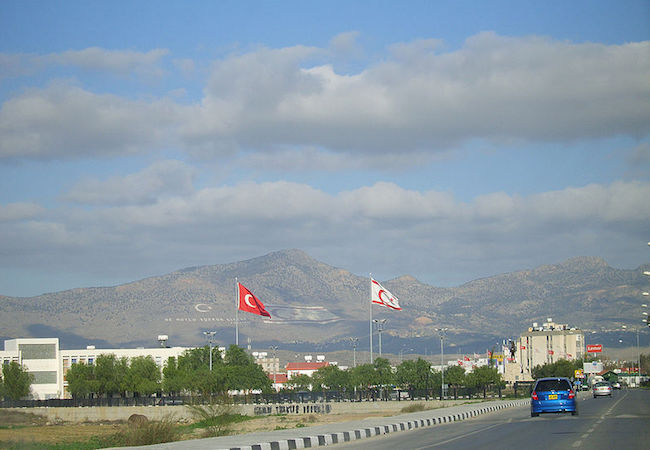Cyprus: Toward a non-territorial confederation?

By Rene Wadlow
After some 20 months of discussions and preparations, a high political-level Conference on Cyprus was opened at the UN headquarters in Geneva on 12 January 2017. In some ways this was a continuation of inconclusive negotiations that have taken place in the 43 years that the country has been divided between Greek Cypriots and Turkish Cypriots. However, in calling this conference the Special Advisor of the UN Secretary-General on Cyprus, Espen Barth Eide, former Foreign Minister of Norway felt that there had been important progress on a range of issues and that a “high profile” conference could move things forward. Thus on 12 January the new UN Secretary-General was back on his old Geneva grounds at the table with Mr Nicos Anastasiades, President of the Greek-administered segment of Cyprus, Mr Mustafal Akinci of the Turkish segment, Mr Jean-Claude Juncker of the European Union and (so that there would be at least one woman at the peacce table) Ms Federica Magherini, the High Representative of the European Union for Foreign Affairs.
The complex political situation has three States as “guarantor powers” – the United Kingdom which was the colonial master until 1963 and Greece and Turkey which created the tensions in the first place. Their representatives were at the table as well.
There is general agreement that Cyprus should be one State and not two, that this one State would be federal in nature, and that this re-united State would be part of the European Union. But as Espen Eide said in a press conference, quoting an old saying “the Devil is in the details;”. The first but crucial “detail” is the geographic frontiers of the Greek and Turkish areas. Maps of preferred internal administrative borders were exchanged among the two presidents in Geneva but not made public. This is the first time that such maps have been exchanged. Given the emotional and complex nature of the situation, geographic divisions with no “natural” frontiers are an issue which can cause real disagreements. Moreover, frontiers that can be easily understood can serve as an excuse if the real disagreement is something else.
There is a prior agreement that when there is finally a firm proposal, the nature of a Federal Cyprus will be presented to both Greek and Turkish Cypriot populations in simultaneous referenda. Thus the negotiators must take into consideration the popular attitudes on both sides so that the agreement is mutually acceptable. The hope is that “the time is ripe” for agreement when both Greece and Turkey are preoccupied with other issues in the volatile region and many Cypriots are tired of the status quo.
The high political level start to the conference lasted for two days and is now to be followed by meetings among civil servants and bilateral contacts in the hope of an overall agreement and a proposal to be made public.
There are two aspects of the negotiations on which the Association of World Citizens would like to propose given its long-standing interest in developing appropriate constitutional structures. First, while for understandable reasons, the term “federal” is now most often used rather than “con-federal”, in the case of Cyprus “ a con-federal Cyprus” might be the better term, a looser form of union, one in which dealing with issues at the most local level possible would be the constitutional structure.
Borders and frontiers are often thought to be “natural and inviolable” even if they are only border in the mind. Attitudes toward borders are often conflict-perpetuating. Borders are a reflection of the past rather than of the future.
Today, there is a need for cross-communal cooperation. Thus there may be a possibility for a Cyprus con-federation based not on geographic divisions but on functions, such as economic initiatives, land law, personal status concerning marriage, separation and inheritance. Such a functionally-based con-federation has conflict-solving potential. There is the Ottoman Empire precedent of different legal rules for people living in the same area. However, neo-Ottoman ideology may not be the best approach to stress in the current Cyprus negotiations. Cyprus, which has one of the oldest UN forces keeping the two communities apart may be a spark of hope for advances in resolving conflicts in other areas as well.




